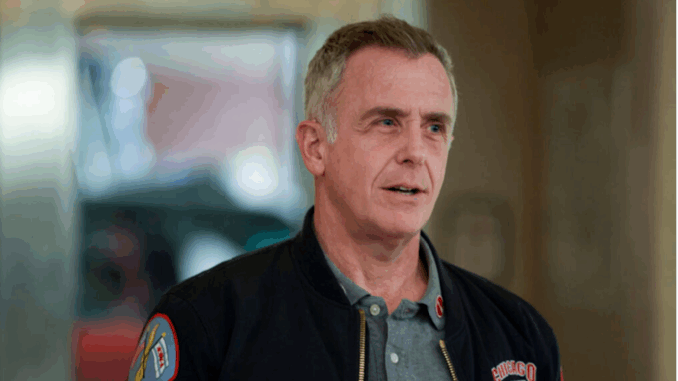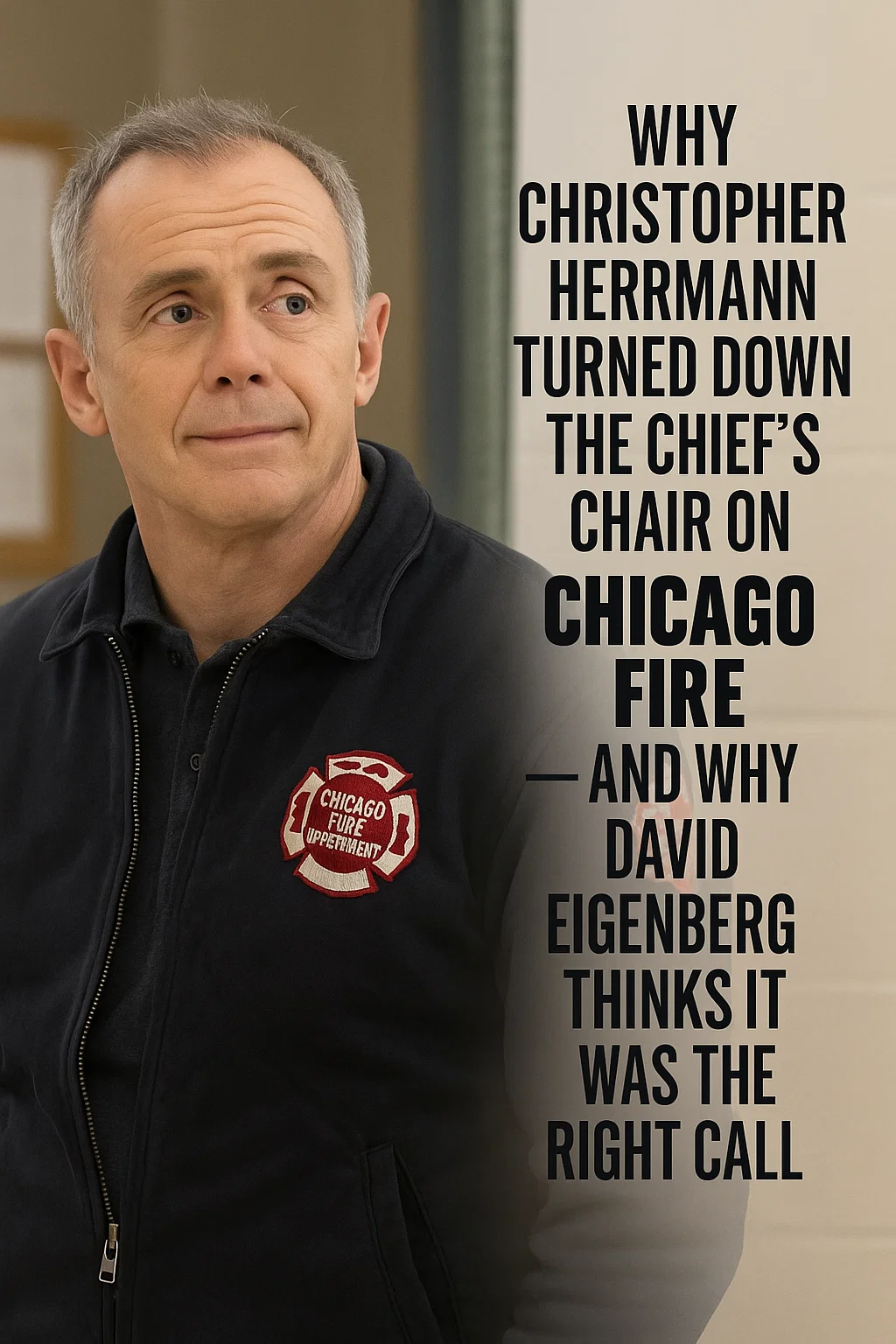
For 13 seasons, Chicago Fire has delivered not only high-stakes rescues but also deeply human character journeys. Few characters embody that balance of grit, heart, and vulnerability better than Christopher Herrmann, the veteran firefighter played by David Eigenberg.
Heading into Season 13, fans assumed that Herrmann was destined for the ultimate promotion. With Chief Wallace Boden (Eamonn Walker) stepping into a higher position and Don Pascal (Dermot Mulroney) filling the role of battalion chief, the natural thought was that Herrmann would eventually take over. Instead, the finale shocked viewers: Herrmann not only declined the opportunity to become chief but also stepped down from his officer role, leaving space for his longtime friend Mouch (Christian Stolte) to rise.
Now, as Chicago Fire gears up for its Season 14 premiere on October 1, Eigenberg has opened up about why he’s grateful Herrmann didn’t chase the chief’s badge — and what it says about the character’s journey.
Not Every Firefighter Is Meant to Lead From the Top
Speaking on the One Chicago Podcast with host Brian Luce, Eigenberg revealed that he appreciates how the writers portrayed Herrmann’s limitations.
“It doesn’t look like [Herrmann] can pull off the whole chief thing,” Eigenberg admitted. “I like that. They were like, ‘You want to be chief on this?’ I was like, ‘Whatever you guys want. I’m a hired gun. I do what I do. I don’t have enough ego in the game probably in my life, but I love people. I love being around. I want to stay for as long as I can, so I enjoyed that kind of journey.”
The actor compared Herrmann’s situation to a character in The Knockout Artist, a novel about a brilliant boxer with a “glass chin.” In boxing terms, that means someone who, no matter how skilled or determined, gets knocked out too easily.
“Sometimes you’re just born with a glass chin,” Eigenberg explained. “It’s not because you’re not man enough, not because you don’t have heart. Sometimes it’s just not who you are. And I like seeing that it’s not always about the ascension and the golden goose. Sometimes it’s about just doing the job and moving forward. That’s what firefighters and PD are about.”
Pressure, Rivalries, and Reality Checks
The decision wasn’t just a character quirk — it was carefully built across Season 13. Showrunner Andrea Newman told TV Insider that Boden’s declaration — essentially anointing Herrmann as his successor — created an overwhelming pressure. At the same time, Mouch, fresh off his recovery from a near-fatal injury, came roaring back into the firehouse with newfound energy and determination.
“Herrmann’s kind of caught between these two things,” Newman said. “The one thing he never asks himself is, ‘Do I actually want this?’”
And then there was Pascal, the new chief whose style forced Herrmann to confront the reality of what leadership meant. Chiefing often requires standing back during emergencies, directing instead of doing. For a man like Herrmann — boots-on-the-ground, heart-on-his-sleeve — that was never going to be an easy fit.
What’s Next for Season 14
Newman confirmed that the fallout from Herrmann’s choice will ripple into the new season. With Mouch stepping up into the officer role, the dynamic between the two lifelong friends will inevitably shift.
“Mouch really steps up and takes over,” Newman teased. “That’s going to complicate things once he’s Herrmann’s boss.”
The storyline promises to explore friendship, pride, and what happens when roles reverse inside the firehouse family.

Why This Story Matters in the Bigger Picture
In a TV landscape where characters are often portrayed as endlessly climbing the ladder, Herrmann’s arc stands out for its honesty. Not every firefighter, officer, or even TV hero needs to end up at the top. Sometimes fulfillment comes from recognizing your strengths, your limitations, and where you truly belong.
For Herrmann, that means being in the thick of the action, running Molly’s Pub on the side, and supporting his family and his 51 family — not sitting in a chief’s office.
As Eigenberg put it, “Sometimes it’s not about getting the golden goose. Sometimes it’s just about getting on with it.”
And that grounded truth might be what makes Chicago Fire still burn bright after more than a decade.